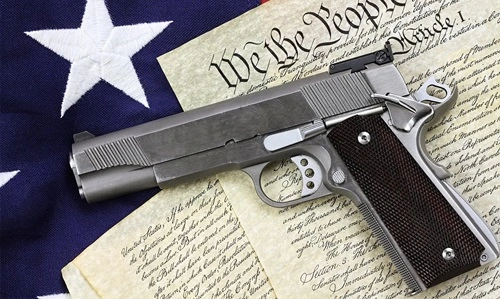Gun control has been a hotly debated topic for decades, with arguments on both sides fueled by concerns over safety, freedom, and constitutional rights. Proponents of gun control argue that stricter laws can reduce gun violence, while opponents believe such measures infringe on individual freedoms and fail to address the root causes of violence.
This article explores the pros and cons of gun control, offering a balanced perspective to help understand this contentious issue.
What is Gun Control?

Gun control refers to laws and policies that regulate the sale, ownership, use, and distribution of firearms. These regulations vary widely across countries and even within regions of the same country. Common gun control measures include background checks, waiting periods, bans on specific types of firearms, and restrictions on carrying concealed weapons.
In the United States, the debate over gun control is deeply tied to the Second Amendment, which protects the right to bear arms. This constitutional provision has been interpreted differently, fueling debates about the extent of government regulation.
The Pros of Gun Control
1. Reduces Gun Violence
One of the primary arguments for gun control is that stricter regulations can reduce gun violence. Countries with stringent gun laws, such as Japan and the United Kingdom, report significantly lower rates of gun-related deaths compared to nations with more relaxed policies.
2. Prevents Mass Shootings
Gun control advocates argue that restricting access to firearms, particularly assault weapons and high-capacity magazines, can help prevent mass shootings. Background checks and waiting periods can also reduce the likelihood of impulsive acts of violence.
3. Promotes Public Safety
By limiting access to firearms, gun control measures can help create safer communities. Laws that prevent individuals with criminal records or mental health issues from obtaining guns can reduce the risk of violence.
4. Reduces Suicide Rates
Firearms are one of the most common methods of suicide, and studies show that access to guns increases the likelihood of successful suicide attempts. Gun control laws, such as safe storage requirements and waiting periods, can provide critical time for intervention and potentially save lives.
5. Enhances Law Enforcement Effectiveness
Stricter gun control can help law enforcement agencies by reducing the availability of illegal firearms. Fewer guns on the streets can make it easier for police to maintain public order and respond to criminal activities.
6. Protects Vulnerable Populations
Gun control measures aim to protect vulnerable populations, including children and domestic violence victims. Laws such as red flag laws allow authorities to temporarily confiscate firearms from individuals deemed a threat to themselves or others.
7. Encourages Responsible Ownership
Gun control laws promote responsible gun ownership by requiring training, licensing, and safe storage practices. This ensures that firearm owners are better equipped to handle and store their weapons safely.
8. Economic Benefits
Reducing gun violence can lead to significant economic benefits by lowering healthcare costs, lost productivity, and expenses related to law enforcement and incarceration.
9. Global Reputation
Countries with strict gun control laws often enjoy a better global reputation regarding safety and public health. This can positively impact tourism and international relations.
10. Public Support
Polls often show that a majority of citizens support common-sense gun control measures, such as universal background checks and bans on assault weapons. Implementing these policies can align with public opinion and promote trust in government action.
The Cons of Gun Control
1. Infringes on Second Amendment Rights
In the United States, opponents of gun control argue that stricter regulations violate the Second Amendment, which guarantees the right to bear arms. They see gun ownership as a fundamental freedom and a means of self-defense.
2. Limits Self-Defense
Gun control laws may restrict law-abiding citizens’ ability to defend themselves and their families. Critics argue that reducing access to firearms leaves individuals vulnerable to criminals who obtain guns illegally.
3. Ineffectiveness in Reducing Crime
Some studies suggest that gun control laws do not significantly reduce crime rates. Opponents argue that criminals will find ways to obtain firearms regardless of regulations, leaving law-abiding citizens at a disadvantage.
4. Black Market Concerns
Stricter gun control laws may lead to the proliferation of a black market for firearms, making it harder to track and control illegal gun sales. Criminals may still have access to guns while law-abiding citizens are restricted.
5. Enforcement Challenges
Implementing and enforcing gun control laws can be challenging, particularly in areas with strong gun cultures or limited resources. Inconsistent enforcement may undermine the effectiveness of these laws.
6. Punishes Law-Abiding Citizens
Gun control measures often place burdens on responsible gun owners, such as lengthy background checks, waiting periods, and licensing requirements. Critics argue that these measures unfairly penalize individuals who follow the law.
7. Impact on Rural Communities
In rural areas, firearms are often used for hunting and pest control. Gun control laws that limit access to specific types of firearms or ammunition can disproportionately affect these communities.
8. Potential for Overreach
Critics fear that gun control laws could lead to government overreach, with authorities expanding regulations beyond what is necessary. This could result in excessive restrictions on personal freedoms.
9. Cultural and Historical Significance
In countries like the United States, firearms are deeply ingrained in the culture and history. Gun control measures are often seen as an attack on these traditions and values.
10. Cost of Implementation
The cost of implementing and maintaining gun control measures, such as conducting background checks and enforcing laws, can be significant. Critics argue that these funds could be better spent on addressing root causes of violence, such as poverty and mental health issues.
Balancing the Debate: A Nuanced Approach
The debate over gun control is complex, with valid arguments on both sides. A balanced approach that considers the following factors may help address concerns:
- Universal Background Checks: Ensuring that all firearm purchases, including private sales, are subject to background checks can prevent guns from falling into the wrong hands.
- Mental Health Support: Investing in mental health resources and early intervention programs can address underlying causes of violence.
- Education and Training: Promoting firearm safety education can help reduce accidents and irresponsible gun use.
- Tailored Policies: Recognizing regional differences and crafting policies that address specific needs can improve effectiveness.
- Data-Driven Solutions: Policymakers should rely on research and data to craft evidence-based laws that balance safety and individual rights.
Who Benefits from Gun Control?
- Communities: Stricter laws can reduce gun violence, making neighborhoods safer.
- Law Enforcement: Reduced access to illegal firearms can ease the burden on police forces.
- Vulnerable Populations: Children, domestic violence victims, and individuals in high-crime areas are more likely to benefit from gun control measures.
However, critics argue that these benefits come at the expense of law-abiding citizens who rely on firearms for self-defense, recreation, or livelihood.
Conclusion
Gun control is a deeply divisive issue that touches on constitutional rights, public safety, and cultural values. Advocates highlight its potential to reduce gun violence, save lives, and create safer communities. On the other hand, opponents emphasize the importance of preserving individual freedoms, self-defense, and the limitations of such measures in curbing crime.
By weighing the pros and cons of gun control, it becomes clear that finding common ground is essential. A nuanced, data-driven approach that respects both public safety and individual rights may offer the best path forward. Whether through universal background checks, education, or targeted policies, the ultimate goal should be to create a society where safety and freedom coexist



